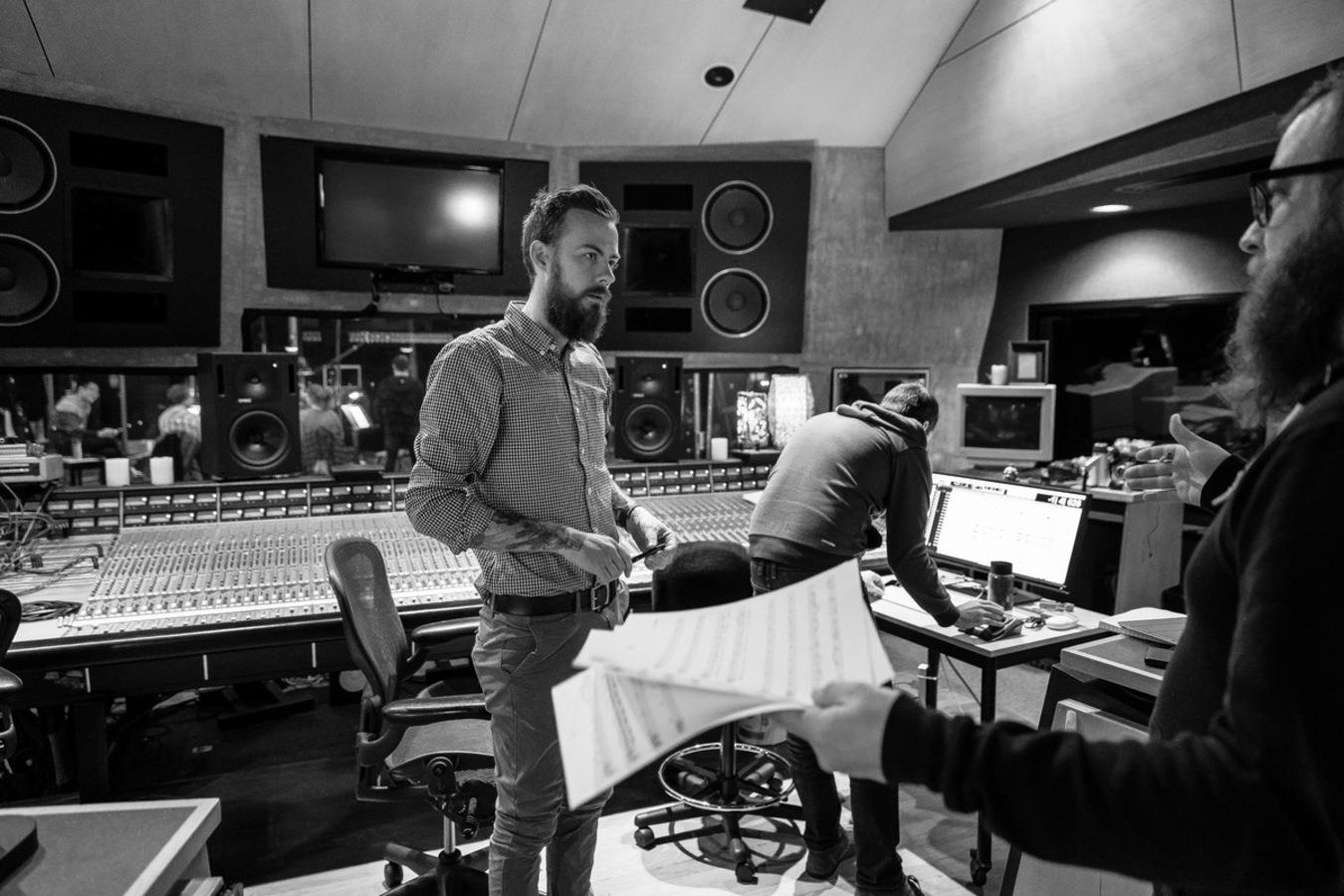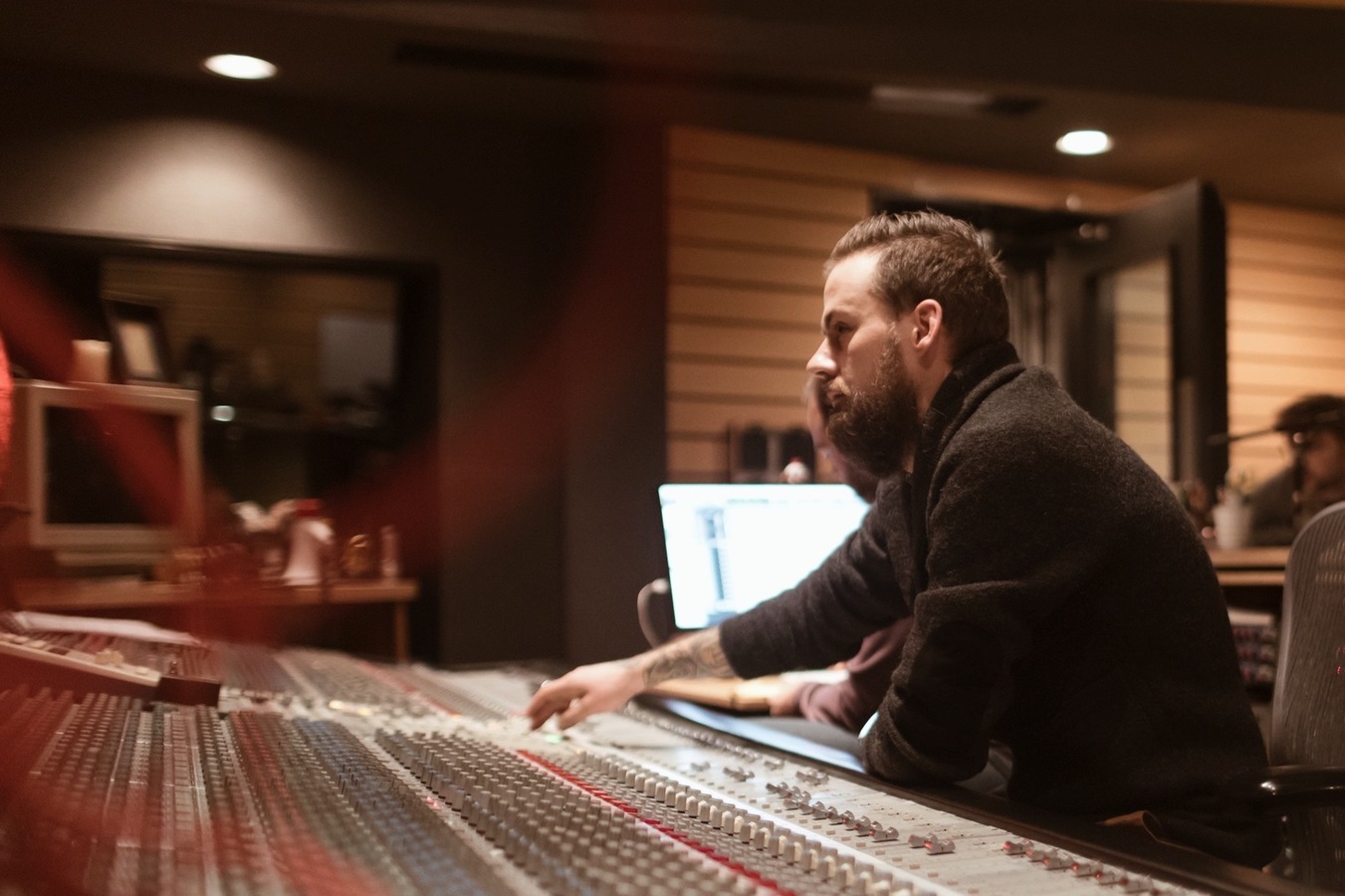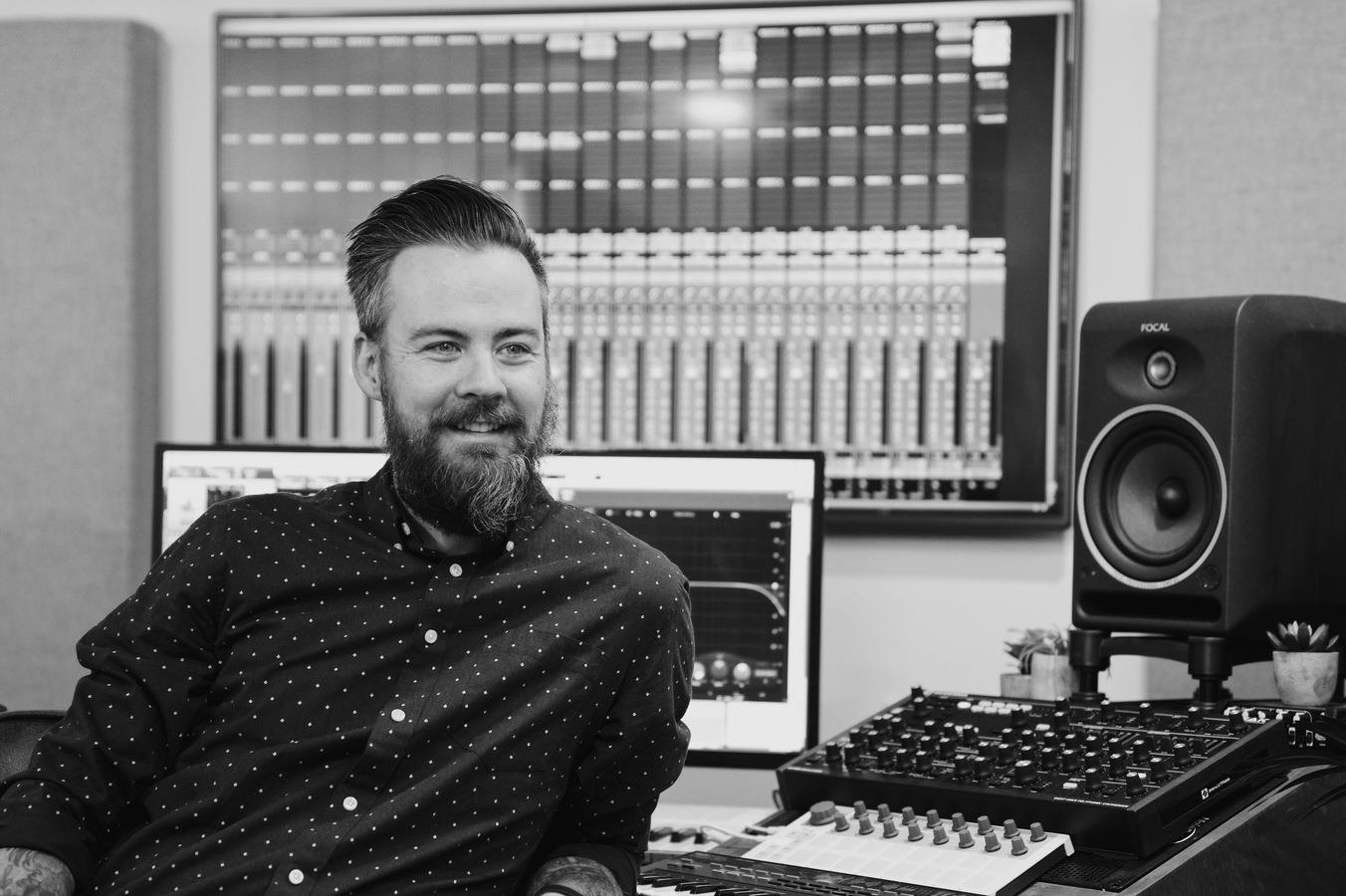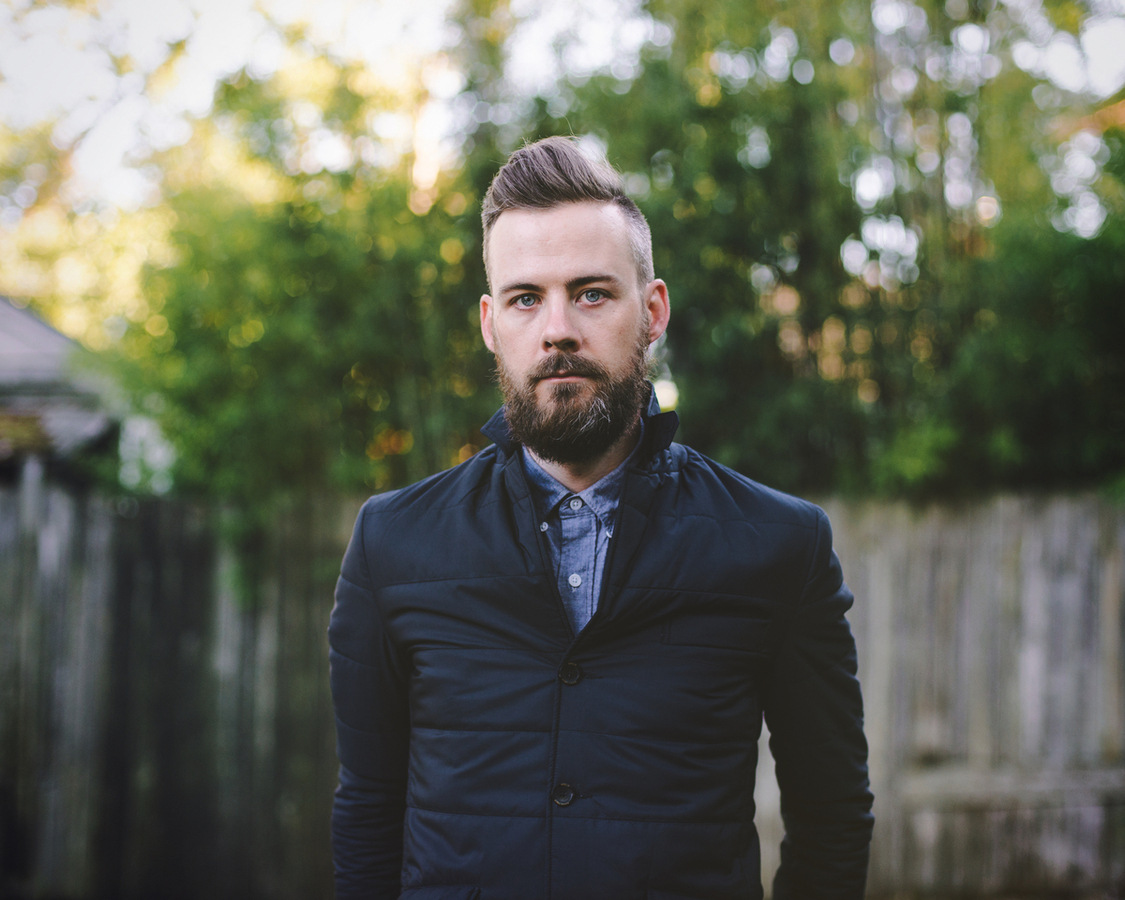
Ambient sounds: Get to know ‘Concrete Cowboy’ composer Kevin Matley
Have you ever wondered what it takes to compose spectacular music for films? Well, award-winning composer Kevin Matley sure does. Matley has scored for many international films like Kifaru, The Cage, and his most recent success Concrete Cowboy.
Concrete Cowboy displays a heartfelt story about a teen who leaves home only to discover the world of horse riding, but between Idris Elba & Caleb McLaughlin’s acting and Kevin Matley’s unique sound, we know we’re in for a cinematic treat!
We got a chance to chat with the great composer, learn all about his incredible journey and get a sneak peak into his upcoming projects. Here’s the behind the scenes with Kevin Matley.

Tell us about your history in music. How did you start your journey?
When I was young my brothers had a bunch of guitars and this old Yamaha 4-track tape recorder lying around. I started messing around with them and eventually came up with what would be generous to call an arrangement, but it was the lightbulb moment where I first realized how much I loved making music.
From there, I remember watching movies and really thinking about the music and observing when it was there and really taking notice of the effect it was having on the characters and me as the viewer. Eventually I landed my first composing job. It was for an LL Bean ad. It was a spec job, but it got a film on my screen and a blank slate started. I was in Heaven.
A year later I landed an assistant gig for a composer. He showed me everything about being a composer. Since then it’s been a whole lot of trial and error, but it can take decades to make a name for yourself in this industry and you gotta be in it for the long haul. Which I am.
Which film composers have inspired you the most?
There’s the greats, John Williams, Ennio Morricone and Bernard Hermann; arguably the best film music composers of all time. But great as their themes are, I’m actually more inspired by their intellectual responses and musical impulses to narratives. Their theme placement and fearless instrument choices are to me, what really make them special. I always pursue some sense of originality in my work and these are some of the guys who inspire that in me.
You began scoring short films in 2013. What were the biggest lessons you took from working on shorts like Russia: The Outpost Volume 1 or The Cage?
Always hire musicians. No matter how much of your budget gets eaten up or if you have to pay out of pocket. When you start working in film music, you generally don’t get hit with blockbusters out of the gate. It’s either low budget or no budget.
The challenge is the music has to be good enough to be a portfolio piece but you also have bills to pay. Do whatever you can to work with the best players and get a day job if you have to because real musicians will elevate and transform your score.
Have you worked with mentors in the past? How would you recommend people go about finding them?
Always reach out and ask. There’s no job application to be a composer. You have to make it happen. Fortunately, most of us are pretty nice and willing to at least chat if not take you on in exchange for help. This line of work has some pretty intense demands, deadlines, and work loads so it’s always nice if someone who knows even a little about film scoring can help.
I worked with a composer named Mateo Messina in Seattle. He’s a very generous and kind person. I learned invaluable lessons working with him. He showed me everything from data management, working with orchestras, working with deadlines, spotting sessions, to paying your musicians well and treating everyone with respect but most importantly, how to translate the language barrier for those who don’t speak music terminology.
Conversation between composer & director is vital to a successful score and you have to know how to express a musical idea to someone who doesn’t know what the hell fortissimo means.
You recently scored the acclaimed drama Concrete Cowboy. What initially drew you to the project?
Ricky Staub and I have worked together in the past quite a bit. He wrote and directed a short film called The Cage which did well in the festival circuit and we’ve also done a handful of ads together.
When he told me he was doing a film about city cowboys and horseback riding in Philadelphia, I probably had the same reaction as most people when they hear that. It’s such an intriguing and different concept. I had to immediately google it and see if city cowboys are for real. Turns out they very much are and not just in Philly. They’re all all over the country.
I’ve worked with Ricky long enough to know that if he has an idea it’s gonna be good. After reading the script my suspicions were confirmed. I immediately loved the story and musical ideas started flying.

You purposely worked with a small orchestra on Concrete Cowboy, and only had them record 1-2 takes at a time. What was the thought process behind this unique approach?
I think out of the gate we all knew a large orchestra wasn’t the right sound for this film. There’s something magical about less players that brings out a bit more grit and humanity in the playing. With a smaller orchestra, no one in the ensemble can hide and each note is more exposed. It’s a different philosophy of approach but I love the results you can get when it’s done well. These are players that have played on hundreds of films, so their first pass is nothing shy of fantastic.
Ricky’s film esthetic is an elegant blend of visceral and gritty and Concrete Cowboy is no exception. It had real people from the stables acting in the film so there’s an intrinsic combination of deep human emotion, but done so with real people who are barely having to act because this is their actual life being played out on screen. So to me it was obvious that an ambient bed combined with raw performances was the way to go.
You also had the percussionist use everyday items like buckets, bottles, and frypans. Was this intended to give the score a more grounded aesthetic?
Exactly. I wanted a rough, aggressive sound. Nothing traditional or familiar. It felt like a good opportunity to match the aesthetic of the city streets and dark alleys. So I got beer bottles, fry pans, buckets and sheet metal. It was a blast to put together. There was a section of my studio that was a mess for weeks and pretty much anything that went near that area was subject to getting hit at least once.
How closely did you work with Concrete Cowboy director Ricky Staub on the soundtrack?
Very closely. Ricky has a very keen sense of how music should move him. Dan Walser, producer and co-writer, and editor, Luke Ciarrocchi, and Ricky were in a room in LA editing the film while I was in Seattle writing the music. The three of them have fantastic musical ideas so it was always fun hearing their feedback and working together to create the score.
Do you like screening a film before you compose the score or do you prefer to compose the music first?
Either really, but I love seeing the script, lookbook, and even go on set or be involved before the shoot. I love getting as much information as possible so I feel like I really know the story when I’m starting, but that’s not always the way it goes. Each project is different and has different needs and requirements. I try to be as adaptable as I can and work however I’m needed to. With Concrete Cowboy, I had the script and Ricky and I got to have many conversations before starting.
Do you find that it’s easier to compose music for stories that you can connect with on a personal level?
Of course, but I feel so connected to the films I work on that it’s hard to tell the difference. When I’m on a project, and my wife can attest to this, I’m a bit distracted. I get so into the story, it’s all I can think about. It’s really difficult for me to shut off after work and be present. I’ve worked on plenty of projects that I don’t relate to at all but feel emotionally invested and deeply connected to the story. It’s just my nature to work that way.

What is your favorite aspect of the film scoring process?
I love leaving little hidden secrets throughout a film score that are variations and plays on pieces the viewer has heard but a different version or in a disparate context. I love tying one idea to another and creating a musical web that some may never notice but at least on a subconscious level, creates a cohesive world of themes and sounds.
Once the hard part of writing the themes is done, then placing and creating alternates and warped versions is the really fun part. Taking a theme that was written for a romantic or contemplative scene and then altering its harmonic context or tempo to such an extreme that it’s now intense or can be used during an action sequence. I did this a lot on Concrete Cowboy.
You have scored several documentaries like Us Against the World and Kifaru. Is there a difference between scoring a narrative film and a documentary?
I’ve been fortunate enough to work on some great documentaries. I try not to write differently. To me, story is story. Whether it’s real or fiction, I think the role of music is the same; to reveal the emotions of the characters or people involved. Someone once told me that dialog tells us what the characters are thinking and music tells us what they are feeling. When I think of it that way, my goal is the same, try to create a world that matches what the viewer will see and tells the same story.
Does your writing approach change depending on the genre you’re working in?
Yes & no. There are certain stylistic aspects of my writing that are consistent from score to score, but each film requires different music and thus a different approach. I try to never do the same thing twice so the process has to be different. That’s the only way I can grow as a composer and break any new ground.
Sometimes I really like giving myself restrictions and only allowing myself to use a handful of tools & instruments. I think some of my best work is done when I’m limited in certain ways.
Other times I try to incorporate instruments I’ve never written with or make everyday objects into instruments and use sounds I’ve never used consistently in a score. Sometimes that means using my children’s toys or rocks and sticks outside. I love thinking about the sounds you hear in everyday life and sampling them. I once used my daughter’s heartbeat from when she was in the womb to create a rhythm for a track. If it fits the world of the film and tells the right story, then the creative possibilities are endless.
Some actors don’t like to watch themselves on the big screen. Do you enjoy listening to your past compositions?
Sometimes. Mostly no. My standards are high and I want to always feel like I can do better and have that pursuit of excellence. Kinda like Jiro Dreams Of Sushi, but “Kevin dreams of film music.”
What has been your greatest professional success?
Writing a score for a film starring Idris Elba, Caleb McLaughlin, and an amazing cast.

How about your biggest professional failure? What did you learn?
I don’t really consider anything so far a failure. I’ve had countless learning opportunities along the way but when you do anything for long enough you’ll get your fair share of problems, mistakes and stressors to deal with and learn from. I think the most important thing I’ve learned is that the more I treat the people I work with (and who work for me) with kindness, the happier I am and the more I enjoy my job.
Can you tell us about any upcoming projects?
I’m going to start working on a film called Between The Rains. It’s a documentary that follows two Kenyan tribes that have been at war with each other for decades and a young boy from one of the tribes who is being raised to be a warrior. It’s going to be heavy but really good. Andrew Harrison Brown is directing and I absolutely love working with him. We worked together on a doc called Kifaru. Keep an eye out for it in 2022!
What’s your mission as a composer? Name the most important thing you want viewers to experience when watching your projects.
I think that good film music consists of two parts: Good music and good storytelling.
I’ve seen films with music that didn’t sound good but told the right story and I’ve seen films where the music sounds amazing but just doesn’t quite fit. To me, bad music is like bad acting. Not everyone watching can tell exactly what’s off, but everyone knows something is not right.
My goal is to write music that will move the viewer but also enhance the emotional nuance of the narrative. If someone watching one of my films is undistracted and engaged with the story, but can also connect with the score, I feel like I’ve done good work. My job is not to be invisible per se, it’s more to not be a distraction.
What advice do you have for aspiring composers?
Honestly, I feel like an aspiring composer myself. But from my limited experience I can confidently say this: There’s no one point when you “make it” in this line of work. It truly is an endless hustle or rather, constant business development. It can take years to make a name for yourself.
Be patient. Focus on meeting directors and building relationships. Find a composer to work for that will show you the ropes and be in it for the love of music & film, not success or money, and you’ll be off to a good start.
Finally, what is your favorite film score of all time?
There’s too many great scores to say! Here’s three I really love: Jane Eyre by Dario Marianelli, Sicario by Jóhann Jóhannsson, and There Will Be Blood by Jonny Greenwood.







